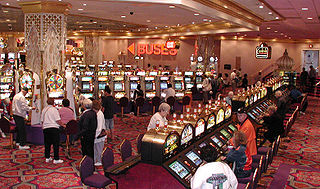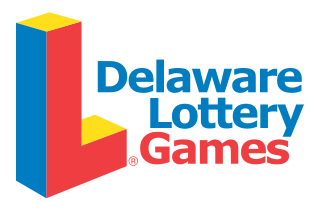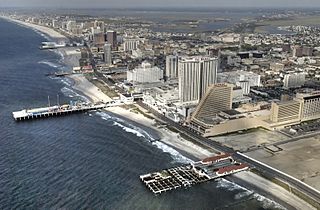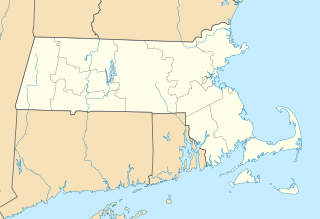Related Research Articles

A lottery is a form of gambling that involves the drawing of numbers at random for a prize. Some governments outlaw lotteries, while others endorse it to the extent of organizing a national or state lottery. It is common to find some degree of regulation of lottery by governments. The most common regulation is prohibition of sale to minors, and vendors must be licensed to sell lottery tickets. Although lotteries were common in the United States and some other countries during the 19th century, by the beginning of the 20th century, most forms of gambling, including lotteries and sweepstakes, were illegal in the U.S. and most of Europe as well as many other countries. This remained so until well after World War II. In the 1960s, casinos and lotteries began to re-appear throughout the world as a means for governments to raise revenue without raising taxes.

Mega Millions is an American multi-jurisdictional lottery game; as of January 30, 2020, it is offered in 45 states, the District of Columbia, and the U.S. Virgin Islands. The first (The Big Game) Mega Millions drawing was in 2002; see below. What is now Mega Millions initially was offered in six states; the logo for all versions of the game following the retirement of The Big Game name featured a gold-colored ball with six stars to represent the game's initial membership, although some lotteries insert their respective logo in the ball.
Powerball is an American lottery game offered by 45 states, the District of Columbia, Puerto Rico and the U.S. Virgin Islands. It is coordinated by the Multi-State Lottery Association (MUSL), a nonprofit organization formed by an agreement with lobbyists and US corporations. Drawings for Powerball are held every Wednesday and Saturday evening at 10:59 p.m. Eastern Time, at Universal Studios in Orlando, with Sam Arlen, Michelle Liles and Laura Johnson as hosts. The drawings are audited by Carol and Company.
Online gambling is any kind of gambling conducted on the internet. This includes virtual poker, casinos and sports betting. The first online gambling venue opened to the general public, was ticketing for the Liechtenstein International Lottery in October 1994. Today the market is worth around $40 billion globally each year, according to various estimates.

Gambling in the United States is legally restricted. In 2008, gambling activities generated gross revenues of $92.27 billion in the United States.
The Oregon Lottery is run by the government of the U.S. state of Oregon. It is a member of the Multi-State Lottery Association (MUSL).

The Professional and Amateur Sports Protection Act of 1992, also known as PASPA or the Bradley Act, is a judicially-overturned law that was meant to define the legal status of sports betting throughout the United States. This act effectively outlawed sports betting nationwide, excluding a few states.
The Oklahoma Lottery is an American lottery that is operated by that state's government. The Lottery, which began ticket sales on October 12, 2005, is a member of the Multi-State Lottery Association (MUSL).
The Montana Lottery is run by the government of Montana. It is a member of the Multi-State Lottery Association (MUSL). The Montana Lottery's portfolio consists of scratch tickets, plus Mega Millions, Powerball, Lotto America, Montana Millionaire, Lucky for Life, Big Sky Bonus, Montana Sports Action, Treasure Play and Montana Cash.
The New Mexico Lottery is run by the government of New Mexico. It was established in 1996. It is a member of the Multi-State Lottery Association (MUSL). It offer draw games and scratch off games. As of December 2014, draw games are Powerball, Mega Millions, Monopoly Millionaires' Club, Hot Lotto, Roadrunner Cash, Pick 3, Quicksters, and Lucky Numbers Bingo.
The West Virginia Lottery is run by the government of West Virginia. It was established in 1984 via a voter referendum. It is a charter member of the Multi-State Lottery Association (MUSL). The Lottery offers games such as Hot Lotto, Powerball, Mega Millions, and scratch tickets. West Virginia has reinterpreted the amendment to its Constitution that permitted its lottery to include casinos, and thus the West Virginia Lottery Commission also regulates slot machines, which are marketed as "video lottery" and available at several hundred businesses; and five "lottery table games" casinos.

The Delaware Lottery is run by the government of Delaware. Its creation was authorized by the state legislature on May 31, 1974. Its "traditional" games include Play 3, Play 4, Multi-Win Lotto, Lucky For Life, Lotto America, Mega Millions, and Powerball. Delaware also offers Keno, sports betting, and video lottery.

The Hoosier Lottery is the official state lottery of Indiana, and is the only US lottery that uses the state's nickname as its official name. It is a member of the Multi-State Lottery Association (MUSL). The Hoosier Lottery sells scratch-off tickets; its draw games include Mega Millions, Hoosier Lotto, Powerball, Cash 5, and Poker Lotto.
Midwest Millions is a scratchcard game that debuted on September 7, 2007 in Iowa and Kansas, administered by the Multi-State Lottery Association. It originally became available in Kansas at the State Fair in Hutchinson and then throughout Kansas on September 13. It was the nation's first multi-jurisdictional scratch game since the Powerball scratch ticket in the early 2000s. In 2007, it was announced that other Midwestern lotteries may be added in a future edition.

The Kentucky Lottery, began in April 1989 after a November 1988 vote in which over 60% of voters cast ballots in favor of it. On April 4, 1989, ticket sales began at over 5,000 licensed retailers with over $5 million in sales on the first day. Kentucky Lottery players had two Scratch-off games to choose from including, Beginner's Luck ($1) and Kentucky Derby Dreamstakes ($2).

The Massachusetts Lottery was established on September 27, 1971, following the legalization of gambling by the Massachusetts General Court, the legislature of the Commonwealth. The Lottery is administered by a commission of 5 members, who include the Treasurer and Receiver-General, the Secretary of the Massachusetts Department of Public Safety, and the Comptroller, who serve on an ex officio basis. The Governor appoints the other 2 members. It is a member of the North American Association of State and Provincial Lotteries (NASPL) since 1972.
Gambling in Pennsylvania includes casino gambling, the Pennsylvania Lottery, horse racing, Bingo, and small games of chance conducted by nonprofit organizations and taverns under limited circumstances. Although casinos gaming has only been legal for about a decade, Pennsylvania is second only to Nevada in commercial casino revenues.

Gambling in New Jersey includes casino gambling in Atlantic City, the New Jersey Lottery, horse racing, off-track betting, charity gambling, amusement games, and social gambling. New Jersey's gambling laws are among the least restrictive in the United States. In 2013, the state began to allow in-state online gambling. Five years later, the state won a lawsuit that dismantled Nevada's monopoly on legal sports betting.

A lottery is a form of gambling which involves the drawing of lots for a prize. Lottery is outlawed by some governments, while others endorse it to the extent of organizing a national or state lottery. It is common to find some degree of regulation of lottery by governments. In several countries, lotteries are legalized by the governments themselves.

Legal forms of gambling in the U.S. state of Massachusetts include casinos, parimutuel wagering on horse racing, the Massachusetts Lottery, and charitable gaming. The Massachusetts Gaming Commission regulates commercial operations under state jurisdiction.
References
- 1 2 "Prize Of $37,500 Won By Housemaid". New York Times . June 9, 1936. Retrieved 2016-09-10.
- 1 2 "Stakes & Sweeps". Time. April 20, 1936. Archived from the original on May 29, 2007. Retrieved 2007-08-21.